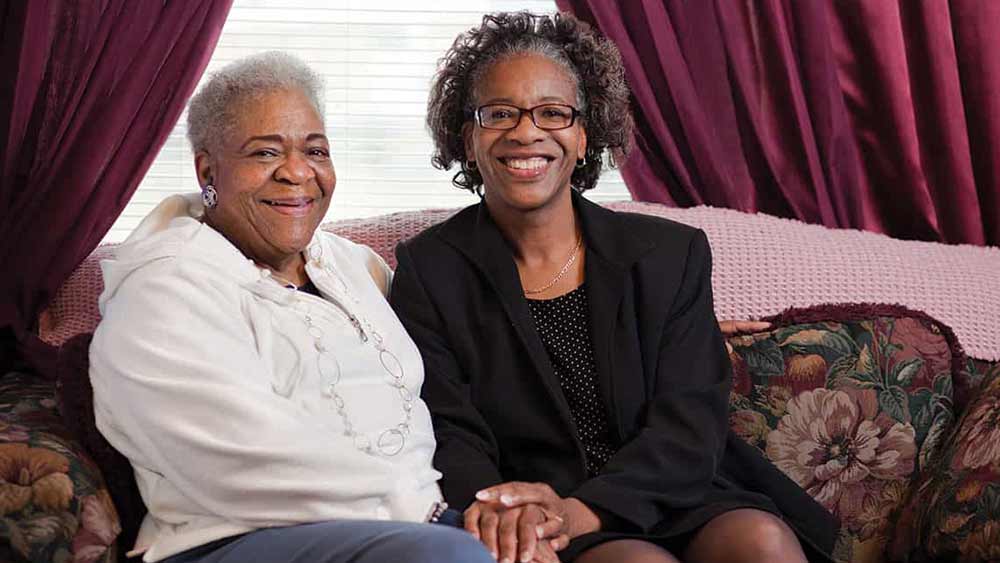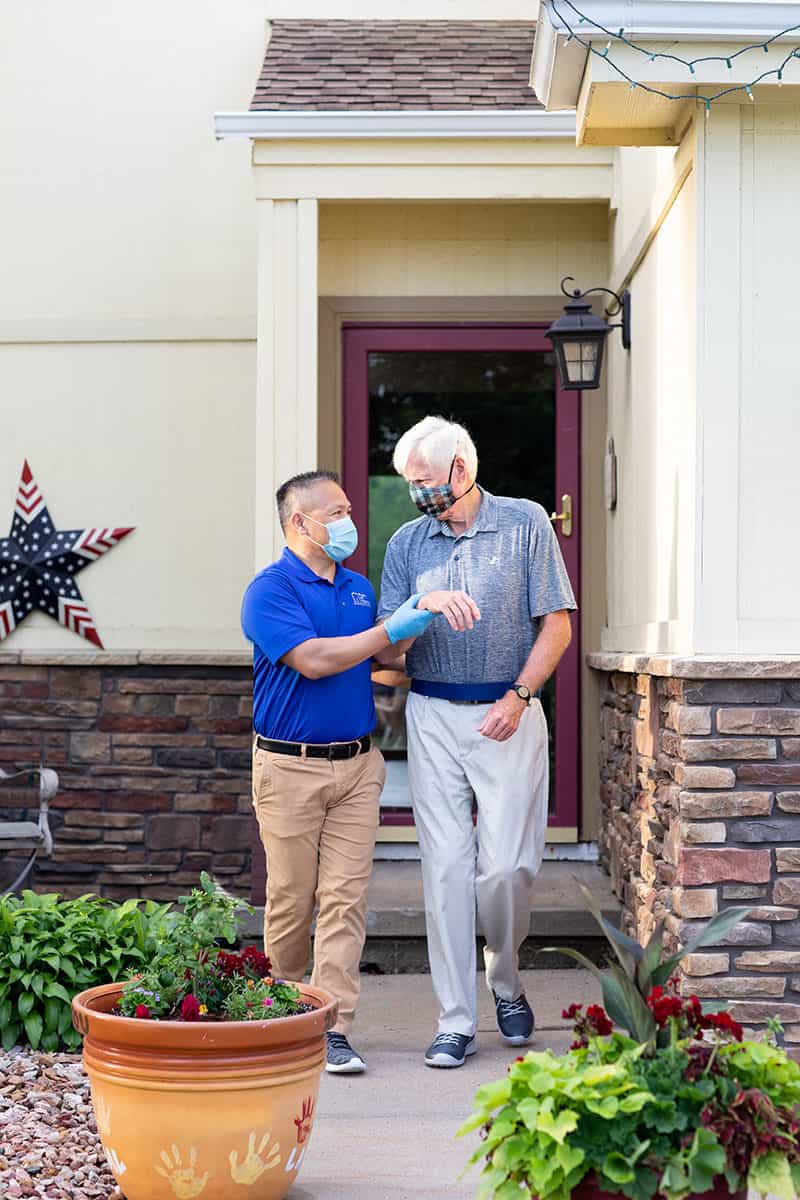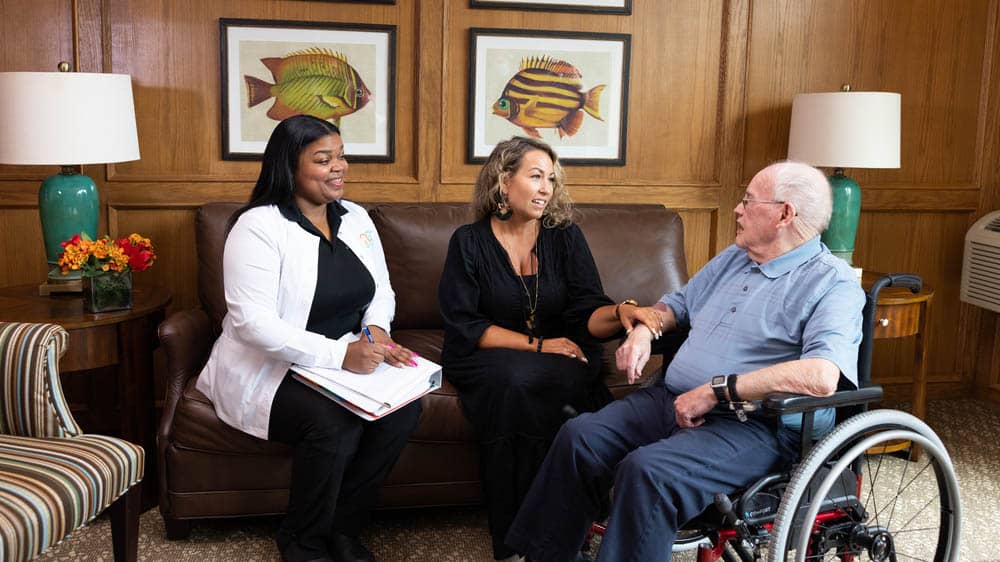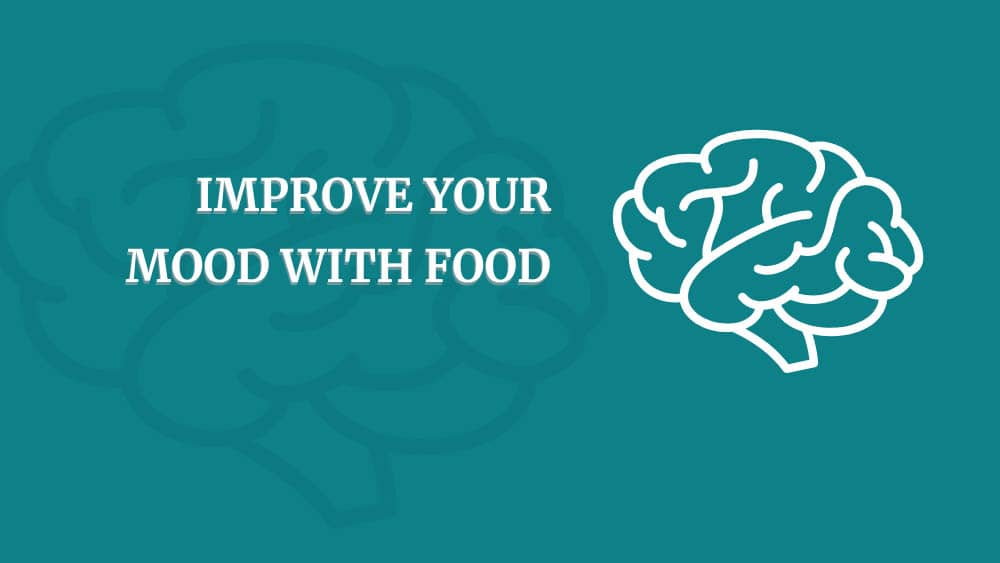

It’s Time to Support Family Caregivers
November is National Family Caregivers Month. This is a great time to learn more about the millions of people who do so much to support the well-being of older relatives and friends. They are helping their loved ones with legal and financial issues and healthcare management. They provide hands-on care and assist with the activities of daily living. They help keep loved ones safe at home and socially engaged—which is extra challenging in 2020.
Family caregiver demographics are changing
- Today’s lower birth rate means there are fewer family members to help older relatives.
- The “sandwich generation” continues to grow—that’s people who are caring for both older relatives and minor children, often in the same household.
- More people in the workplace today also have a “second job” as caregiver for loved ones, and they struggle to balance those roles.
- An increasing number of caregivers are older than 65, many with health challenges of their own.
- On the other end of the age spectrum, more minor children are providing care for older relatives or relatives with disabilities.
Family caregiving is a labor of love, and studies show it offers many emotional rewards. But caregiving is hard work. Caregivers can put their health in jeopardy. They have little time to exercise, go to the doctor, or relax and unwind. They may be financially supporting their loved one, while cutting back on their own work hours. And in 2020, as they help loved ones stay safe, they are under even more stress! The Centers for Disease Control and Prevention recently noted, “Unpaid caregivers for adults, many of whom are currently providing critical aid to persons at increased risk for severe illness from COVID-19, had a higher incidence of adverse mental and behavioral health conditions compared with others.”
How can we help caregivers?
If you know a family caregiver (and no doubt you do), this is a great time to lend a hand. If you’re a family member, organize a family meeting to talk about sharing caregiving tasks. Friends can join in, too. Here are other ways you can help:
Listen. Even though caregivers spend many hours with their loved ones, they can still feel isolated and lonely. Turning their feelings inward, they put themselves at risk for depression. Caregivers report that friends often ask about their loved one’s condition—but they forget to ask “And how are you doing?” Encourage the caregiver to share their thoughts and feelings. Starting this conversation can be a real gift.
Ask what the caregiver needs. Begin with “Tell me how I can help.” Offer to stay with the person who needs care so the caregiver can have some time off. Offer to bring by a meal once a week. Pick up groceries and prescriptions. No doubt you have skills that would be a blessing—computer assistance, yard work or help preparing taxes. Once you’ve brainstormed together with the caregiver, get it on the calendar.
Express your appreciation. Caregiving can be a thankless task, and we tend to take caregivers for granted. Beyond the offer of practical help, take time to say “thank you.” Send flowers, a treat or a gift certificate, along with a personally written message of appreciation. And remind others to do so. Hearing that they are valued can provide a real mood boost for caregivers.
Help the caregiver locate help. Government agencies, charitable groups, businesses and employers offer many resources to help caregivers. But studies show that navigating the elder care system is a huge source of stress for caregivers. “The search for information about available services, the effort needed to access them, and the ongoing monitoring and advocacy required to ensure health and social needs are met is far from negligible,” said Laura M. Funk of the Institute for Research on Public Policy in Canada. “It generates important economic and social costs, including time that caregivers might have spent on other care activities, in paid employment or in social activities.”
Who else can help?
Look into the services of an aging life care professional (also known as a geriatric care manager), who can help locate services. Support groups are a great setting in which to share emotions safely and find tips from people who have “been there.” And for many families, professional in-home care is the ingredient to creating a successful care strategy.
Skilled nursing care can be provided at home, and may be covered by Medicare and private insurance. But most home care is nonmedical, including services such as hygiene care (bathing, dressing, grooming, help going to the toilet), housekeeping and laundry, meal preparation, health reminders, transportation, and companionship.
Some nonmedical home care may be covered by a person’s health plan or public benefits. When it’s not, remember that contributing to the cost is a great way for other family members to do their part. This usually helps them feel a lot better about the well-being of both their loved one who needs care, and the family member who is providing the lion’s share of care.
Do your homework. Choose a reputable agency that screens, trains and supervises their caregivers, and handles liability insurance and workers’ compensation for their employees. And especially in 2020, it’s important to check out the agency’s infection control policies.

Remember: If you are not a caregiver now, chances are you will be someday. Chances are just as good that you will someday need care. Let’s honor and support family caregivers now, and for the future.
Right at Home care experts work with families to support the needs of senior loved ones and family caregivers alike. Find your local Right at Home and ask for a care consultation today.







